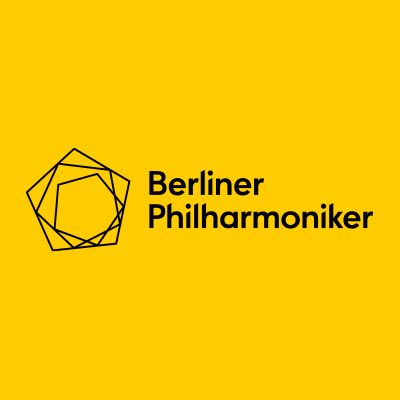Overture, Concerto, [Break] Symphony. Tried and trusted, or dull and dated? Whatever one's perspective on the traditional concert-format/formula, it was hard to argue with the quality of the performances at the Philharmonie on Friday night. Much of the buzz may have been around the soloist, but the orchestra also rose to the occasion magnificently. A first half devoted to the music of Mendelssohn and Schumann might most predictably have been followed by that of Brahms, but instead Rachmaninov's Third Symphony provided a satisfying capstone to the evening.
With the piano on stage from the beginning, there was no gainsaying the fact that Mendelssohn's short Overture to Ruy Blas was merely a (metaphorical) curtain-raiser. Given the composer's reported disdain for the Victor Hugo play on which it was based, it is no surprise that the piece is less often heard nowadays than his other one-movement works such as The Hebrides. Setting aside its programmatic aspects (as Mendelssohn attempted to do by retitling it Overture for the Theatre Pension fund for a later performance) it is effectively put together, with occasional echoes of Beethoven's Leonore no. 3 Overture and Mendelssohn's own A Midsummer Night's Dream Overture. The opening motto showcased the sonorous Philharmonic brass and wind, answered by a limpid figure on the strings. Later on the violins might have been crisper in the middle register, but the overall impression was of efficiency and polish.
The description “legendary” is much overused in artists' blurbs, but if there is any living pianist who has merited the epithet, it is Martha Argerich. The Argentinian is now in her 70s, but on the evidence of this performance of the Schumann Piano Concerto in A minor, she retains much of the impetuosity and fire that made her early recordings so compelling. This was her first appearance with the Berlin Philharmonic since 2007, and unsurprisingly she played to a jam-packed auditorium. It also saw her reunited with Riccardo Chailly, with whom she made her celebrated 1982 recording of Rachmaninov's Third Piano Concerto.
Argerich notoriously dislikes solo performances, and for the past few decades has mostly opted for chamber music and concertos. The spirit of the Schumann concerto is inherently collegial rather than solo-centred, and for the most part this was realised in this performance. On a few occasions in the outer movements, Argerich slightly pushed matters; for instance, her first entry with the A minor main theme overlapped the concluding G sharp of the opening oboe melody. Her octave passages (thrillingly impressed on the memory of anyone who ever heard her recording of Liszt's Hungarian Rhapsody no. 6) were thunderous and surging here. There was plenty of excitement in the coda to the first movement, where the dynamic was held down, and the main theme of the finale was fabulously crisp, even if she led the orchestral musicians a bit of a dance in this last movement.
However the quieter sections were even more memorable. The central episode in the first movement (with a gorgeously played cantilena clarinet melody) was delectable, as was the entire second movement, where soloist and orchestra dovetailed to perfection. The second theme here is taken by the cellos, with the piano mainly accompaniment, but Argerich turned the linking passagework at the ends of each phrase into magical reveries. The solos from oboe and clarinet were particularly fine. After numerous ovations, Argerich played Schumann's 'Traumes Wirren' (Dream's Confusions) as her encore. She not only obeyed the tempo indication 'extremely lively', but also captured the whimsical spirit of this number.
Like many of the works written by the emigré composer, Rachmaninov's Symphony no. 3 in A minor is commonly heard to express his nostalgia for his native land, and certain melodies do have a distinctly Russian flavour. However, the jazzy ninth harmonies at the start of the second movement suggest that he was not immune to the influence of America, his second home. Under Chailly's direction, the orchestra gave a performance that was especially remarkable in its colouristic variety and imagination. The opening idea, played on muted cello solo, clarinet and stopped horn, was blended into an unearthly sonority. Whenever Rachmaninov opened into a big tutti, the players responded with gusto, although (as is not untypical of the composers late works) the swaggering tunes tend to take unusual turns or end prematurely. The second movement began with a ravishing horn solo, and the interpolated scherzo section had balletic delicacy at appropriate moments. The finale had the bustling energy of a hoe-down, with both swooning sections and the quieter oases well contrasted. Perhaps this rendition convinced more in details than as a whole, but when the moment-to-moment pleasures were so high, this hardly was matter for complaint.




